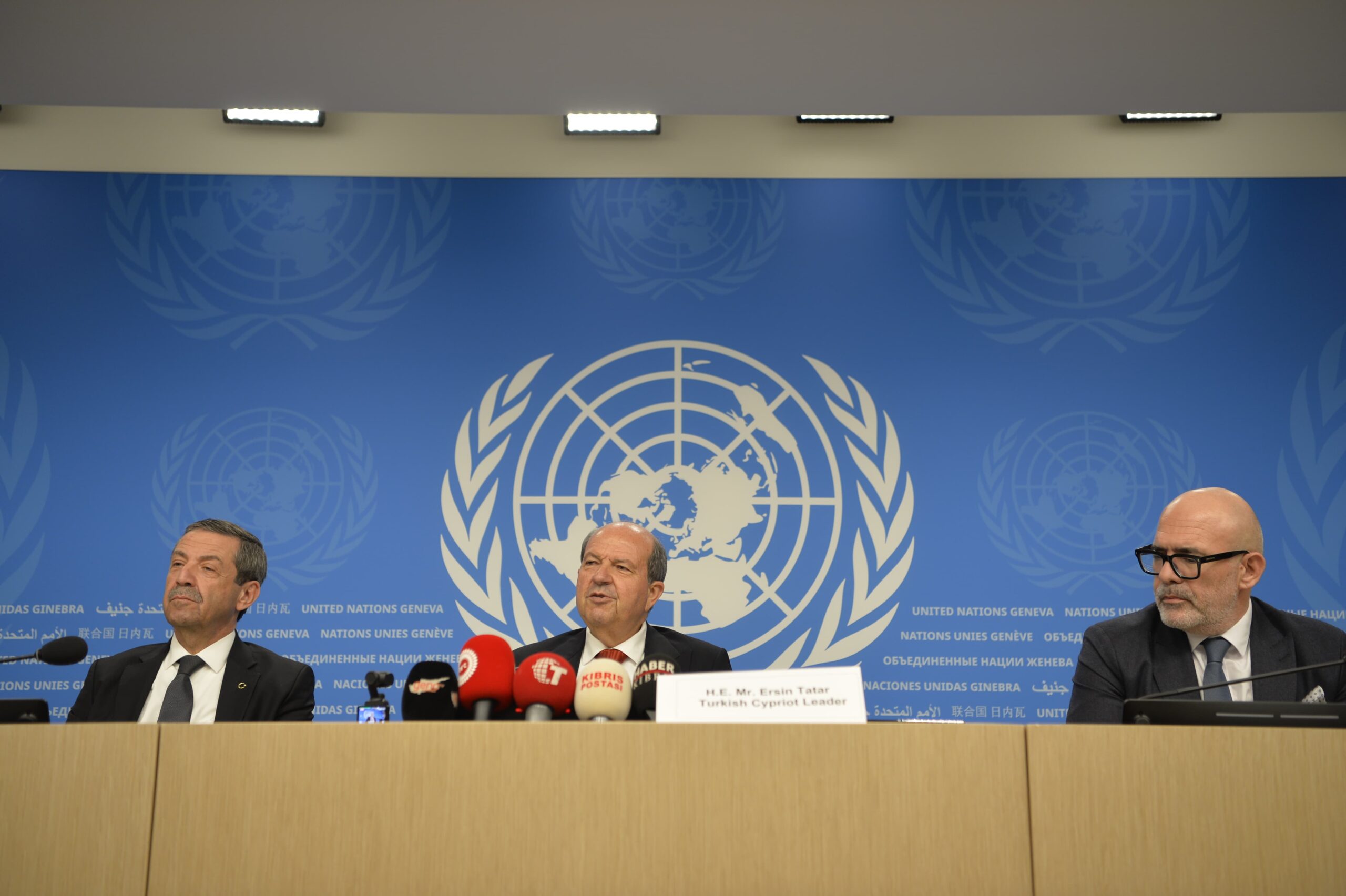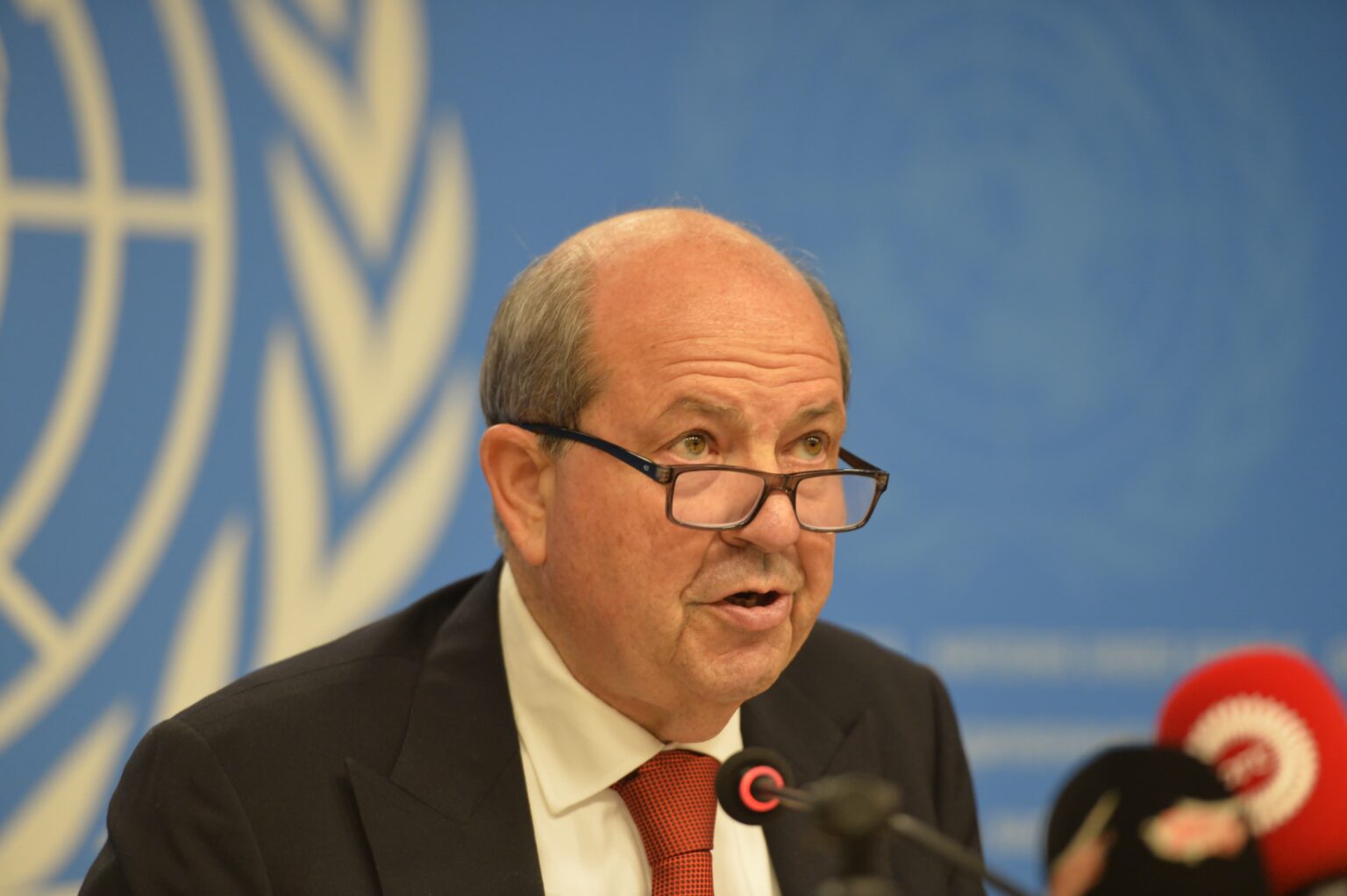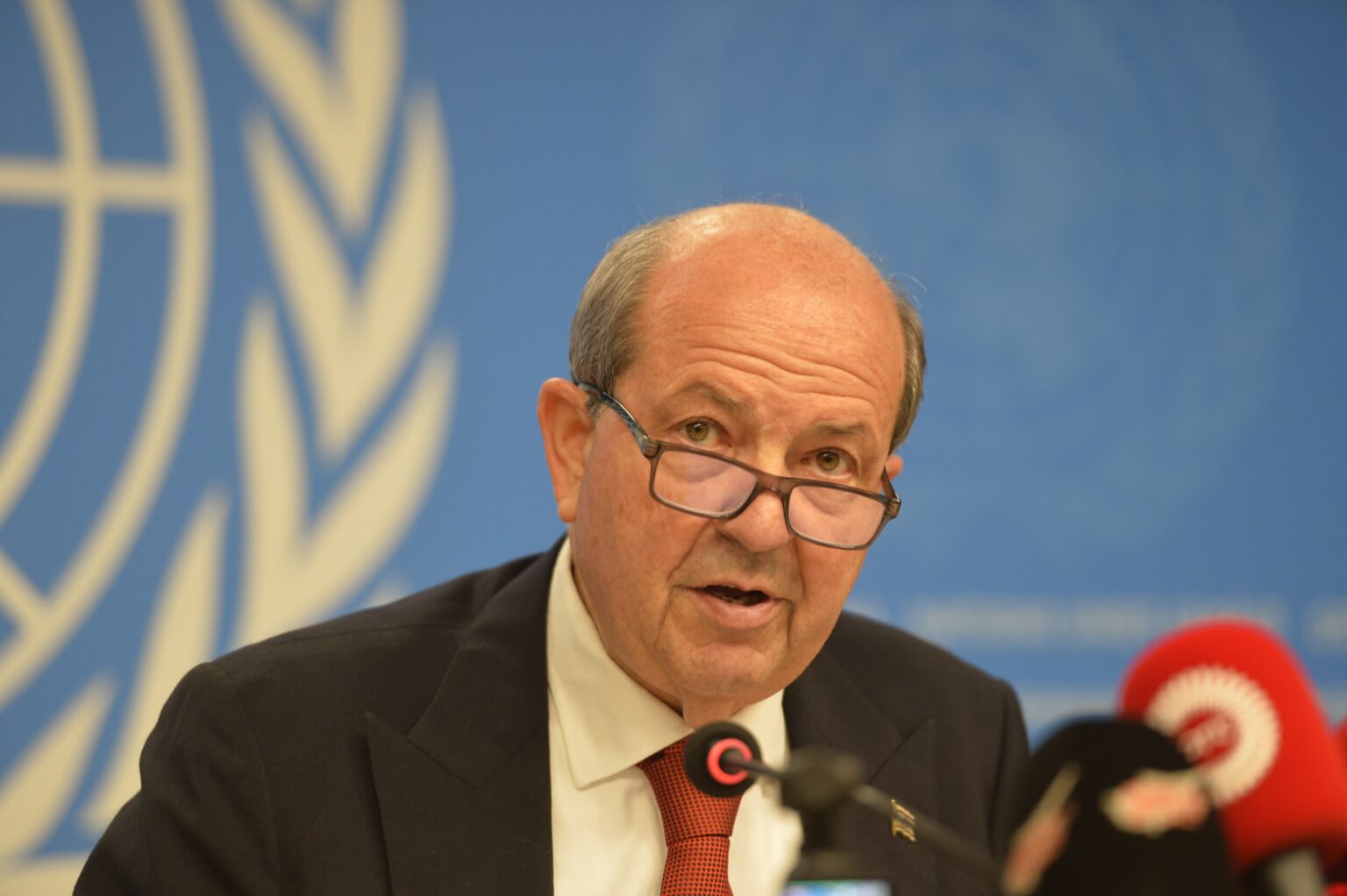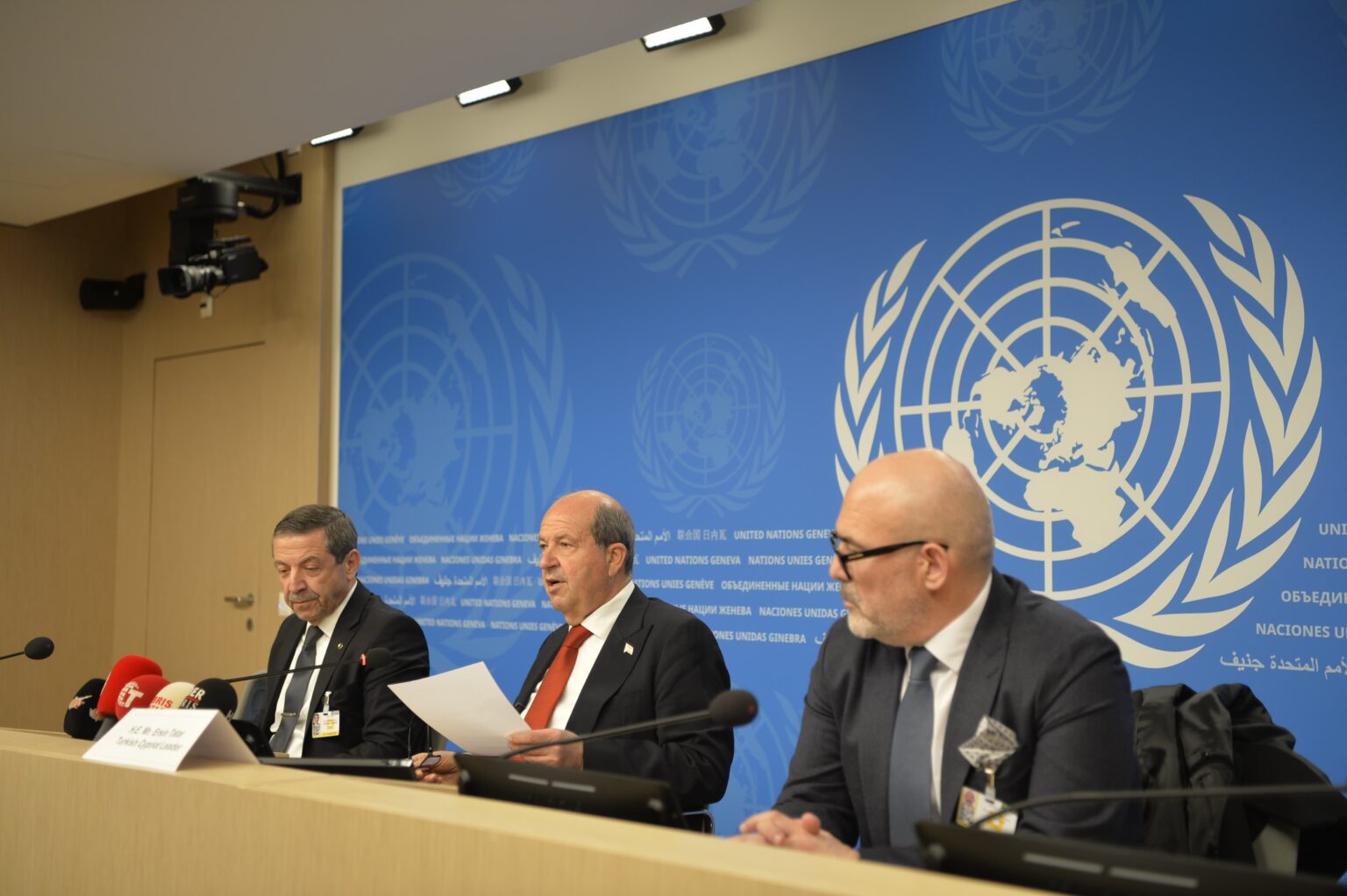
President Ersin Tatar stated that efforts were being made to create a more permanent and sustainable environment for both sides during the informal Cyprus meeting in Geneva.
Tatar reiterated his stance that negotiations cannot continue without sovereign equality and equal status, emphasizing, “Our status must also be brought to an equal level so that we can begin negotiations on a fair basis.”
He also revealed that he had presented a new proposal during the informal discussions, stating, “I proposed the establishment of a Cyprus Cooperation Council, but the Greek Cypriot leader rejected it.”
Addressing reporters at a press conference at the Palais de Nations in Geneva following the 5+1 summit, President Ersin Tatar highlighted that the discussions aimed to foster a broader and more constructive environment, which he described as “a new chapter for us.”
He stressed that both Turkish Cypriots and Greek Cypriots deserve better, pointing out that previous attempts at a federal solution had not yielded results.

“As Turkish Cypriots, our stance on a federal solution has been clear. We have consistently stated that official negotiations can only proceed on the basis of sovereign equality and a two-state framework. That is why, after four years, we met again in the same building in Geneva, reiterating our position. Without sovereign equality and equal status, negotiations cannot continue,” he asserted.
Tatar also expressed gratitude to Türkiye for its support, extending thanks to President Recep Tayyip Erdoğan and Foreign Minister Hakan Fidan for their backing.
Tatar criticized the Greek Cypriot side’s insistence on continuing negotiations from where they left off in Crans-Montana, arguing that such efforts had proven unsuccessful for over 50 years. “Our hopes remain high, and we believe we can move forward with a new approach and policy. Only then can we succeed,” he stated.

Emphasizing the necessity of fostering a stronger culture of cooperation, Tatar underlined the importance of ensuring equal status between the two sides.
He proposed the formation of a Cyprus Cooperation Council, which would enable collaboration on critical issues such as energy, electricity interconnection networks, illegal migration, green energy, climate change, water resource management, and earthquakes.

However, he expressed disappointment that Greek Cypriot leader Nikos Christodoulides had rejected this initiative. “This proposal is crucial for a sustainable future, yet it was unfortunately dismissed,” Tatar concluded.